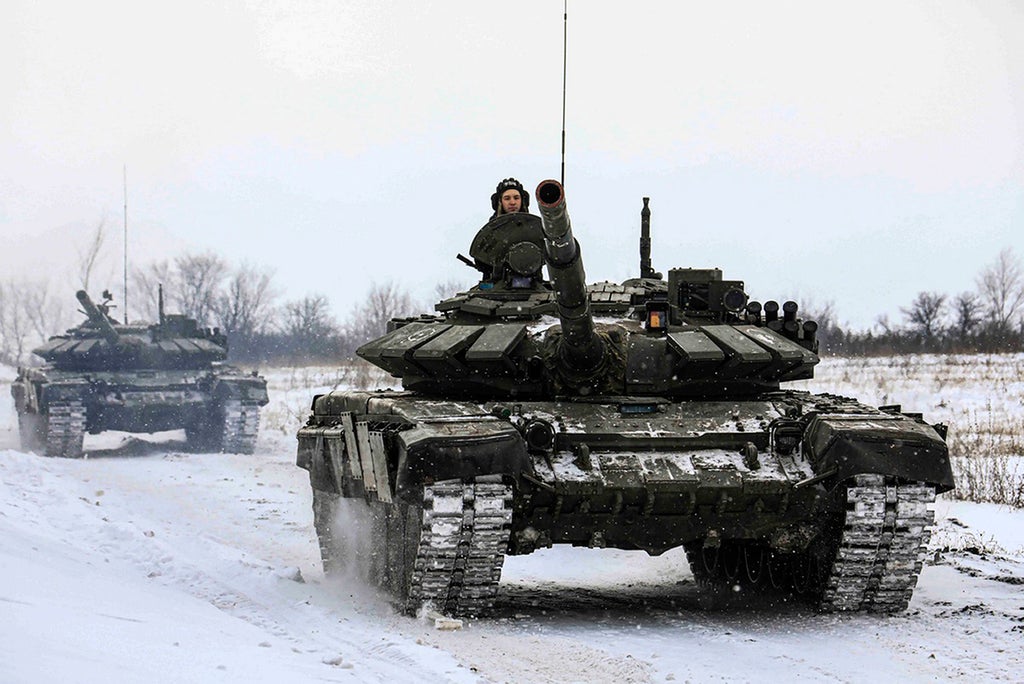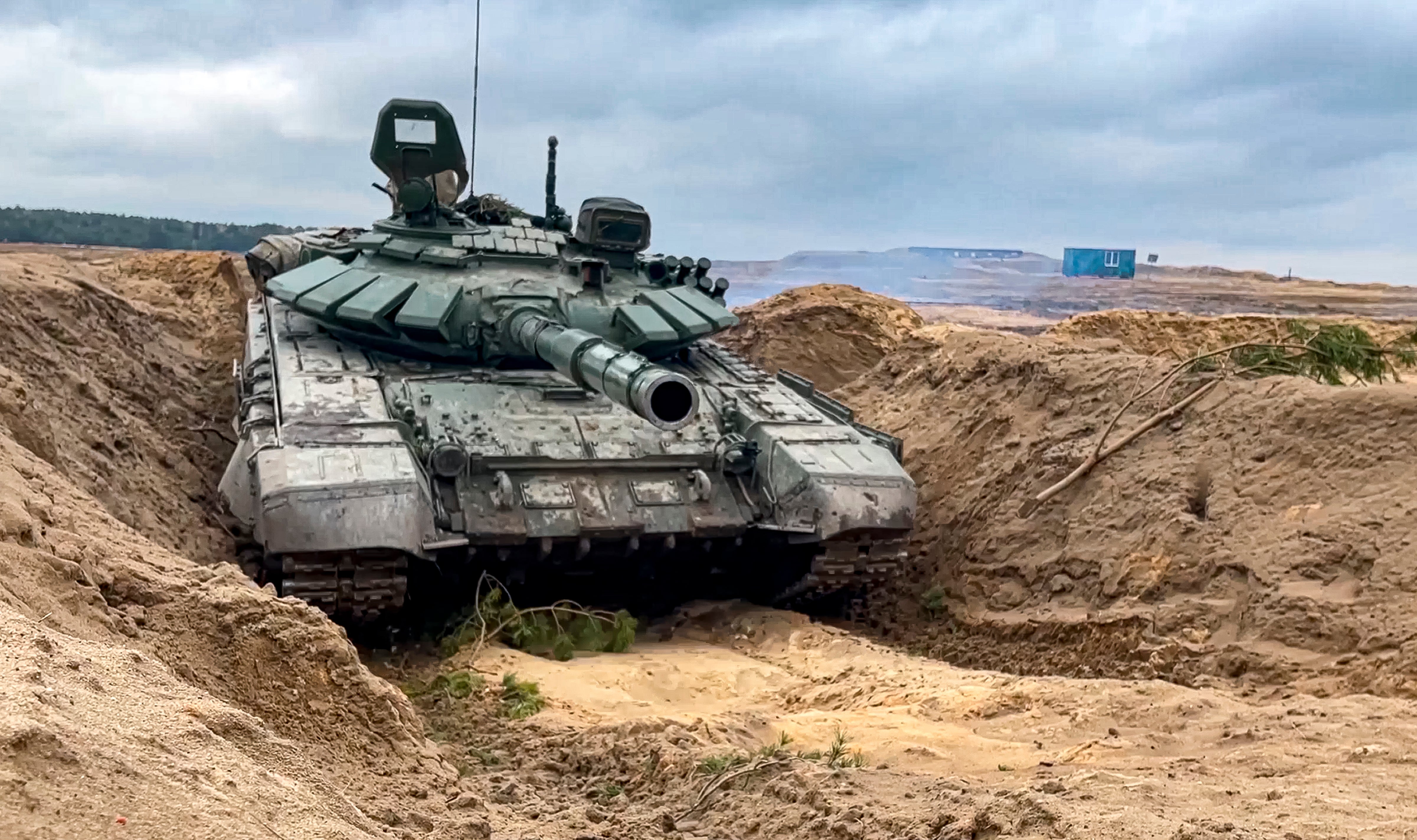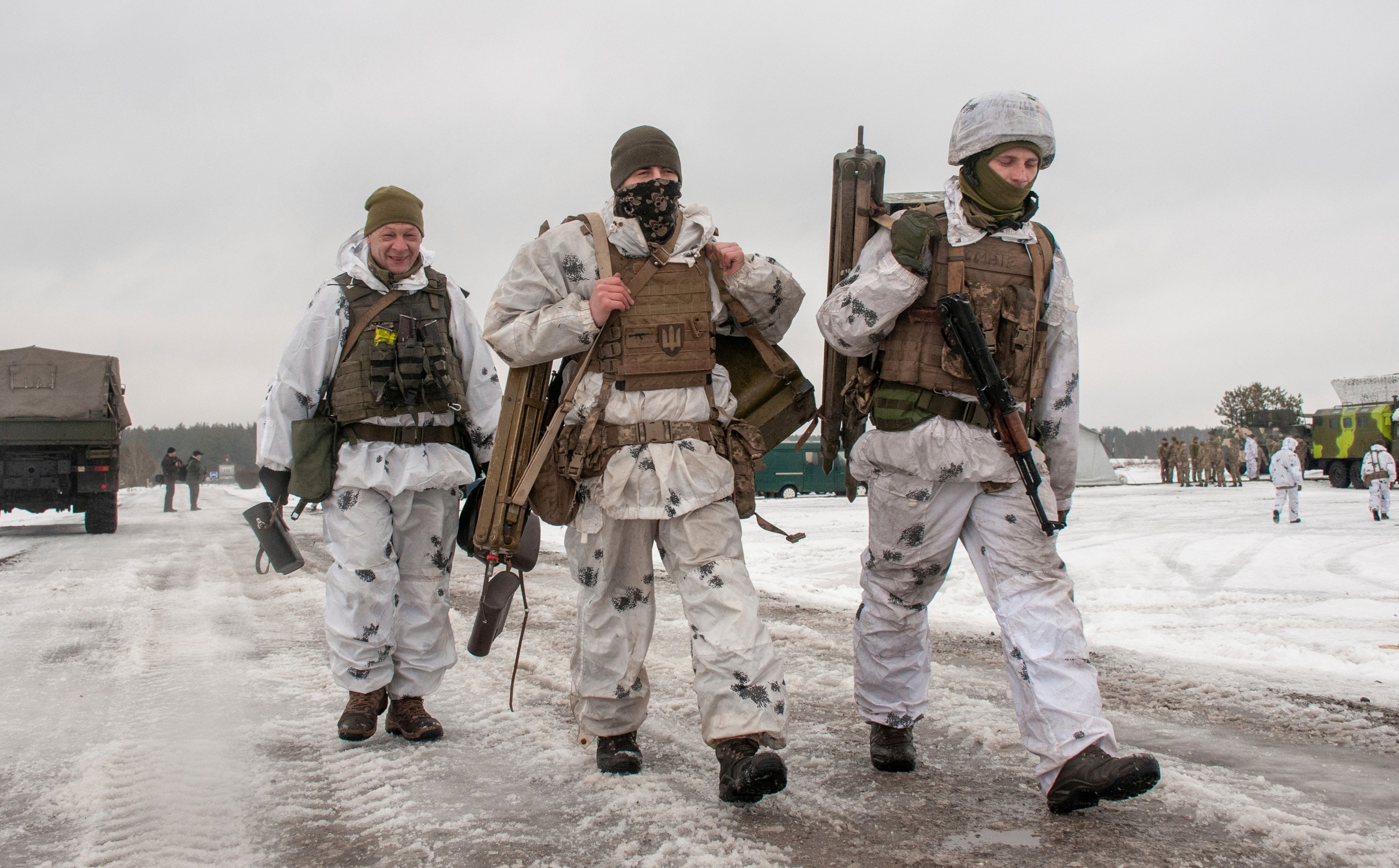
Russian military activity which Western leaders fear could spill over into war “would not stop at Ukraine”, the British foreign secretary has warned.
Commenting on the implications of the Kremlin-instructed build-up of an estimated 130,000 troops along the Ukraine border, Liz Truss said an invasion would be seen as an “attack” on the wider region.
She told Sky News: “President Putin has actively questioned why other countries in eastern Europe are members of Nato … so this, I fear, would not stop at Ukraine.
“This is an attack on the neighbouring states of Russia and other east European countries.”
Former Soviet countries in Eastern Europe are at the centre of the crisis as Moscow wants guarantees that Nato will not allow them to join as members.
Russia also wants the alliance to halt weapons deployments to Ukraine and roll back its forces from Eastern Europe.
For rolling coverage of the Ukraine crisis follow The Independent’s live blog here

Speaking on Tuesday morning, Ms Truss repeated the warning that a Russian invasion of Ukraine could be "imminent and highly likely" despite reports that some troops were being moved back from the border.
"It's still the case that an invasion could be imminent and it is highly likely. What we are doing is pursuing the path of deterrence and diplomacy, urging Vladimir Putin to step back from the brink,” she said.
"He currently has 100,000 troops stationed on the Ukrainian border. We want those troops to be moved, but, of course, we are preparing for the worst."
Moscow claimed the pullback announcement was proof that fears of war were exaggerated by a hostile West. “February 15, 2022, will go down in history as the day Western war propaganda failed. Humiliated and destroyed without a single shot fired,” Russian foreign ministry spokesperson Maria Zakharova tweeted.

However, Ms Truss noted the Russian president could still "change his mind".
She said: "We know or we believe that Vladimir Putin has not yet made a decision about whether to invade Ukraine. We think it's highly likely.
"There are huge numbers of troops lined up on the border. We know that they're in a position to attack imminently, but he can still change his mind and that is why diplomacy is so vital."







